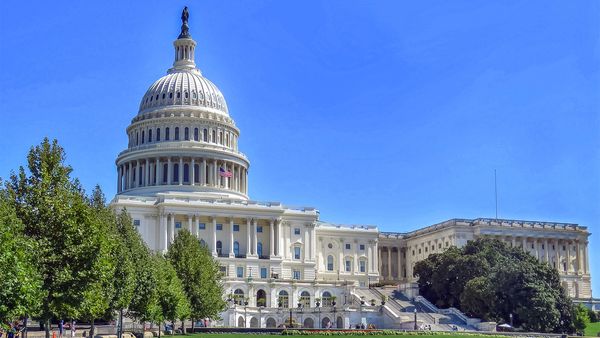
New York City has a nasty surprise for wood-fired-pizza fans.
In the next few weeks they might get a message from their favorite pizzerias announcing that they have changed the way they cook their pizzas.
The New York City Department of Environmental Protection has proposed new rules concerning the use of wood-fired ovens. The agency wants restaurants using wood-fired ovens to reduce their carbon emissions by 75%. The goal of the new rules issued on Jun. 23 is to tackle a big contributor to air pollution.
"All New Yorkers deserve to breathe healthy air and wood and coal-fired stoves are among the largest contributors of harmful pollutants in neighborhoods with poor air quality," the DEP said in an emailed statement. "This common-sense rule, developed with restaurant and environmental justice groups, requires a professional review of whether installing emission controls is feasible."
The New York Post was first to report about the proposed new rules.
They require restaurants that have coal- and wood-burning stoves installed prior to 2016 to have a professional review (by an architect or engineer) as to whether installing emission controls is feasible in their building/set-up. If it’s not feasible to retrofit the building or stove, the restaurants won’t have to. If it is feasible, they will. We think this rule will affect less than 100 restaurants.
'It Won't Make a Difference': Musk
The New York City initiative has not escaped Elon Musk, the billionaire CEO of electric-vehicle manufacturer Tesla (TSLA).
Musk, one of the most influential and powerful voices in the environmental sphere, has in recent months attacked initiatives, projects and rules that are intended to combat climate change but that he considers to be of limited effectiveness.
For example, he has just asserted that agriculture is not as harmful for climate change as some environmental activists claim.
"Important to note that what happens on Earth’s surface (e.g. farming) has no meaningful impact on climate change," the billionaire said on June 24. "Overwhelmingly, the risk of climate change is due to moving billions of tons of carbon from deep underground into the atmosphere."
Activists believe, however, that farmers worldwide contribute greatly to climate change through two gases less known to the public than carbon dioxide. \
Methane, which is emitted by ruminants, is considered the second largest contributor to the greenhouse effect after CO2. It is said to be "a powerful but short-lived climate pollutant that accounts for about half of the net rise in global average temperatures since the pre-industrial era," according to the Global Methane Pledge.
As for the new rules on wood-fired ovens in New York and their environmental impact, Musk has just launched a scathing critique of these measures.
For the billionaire, who has promised that a sustainable energy economy is possible, these measures won't change anything in the environment. They are simply posturing, he seems to say.
"This is utter bs," Musk said of the proposed new rules on June 26 on Twitter. "It won’t make a difference to climate change."
New York City Isn't Alone
The City Council passed a law in 2015 --known as Local Law 38 -- that requires restaurants with wood-burning and coal-burning stoves to install equipment to dramatically reduce emissions. The law went into effect in 2016, so all restaurants with these stoves from 2016 and later are required to have specialized emission controls.
The rules were supposed to be issued by 2020, but because of the pandemic it was delayed. The proposed rules are subject to public comment.
Nothing has been enacted yet.
Before New York, many Western cities, such as Montreal, took steps to better regulate the use of wood-fired ovens, which are used to bake bagels, chicken and pizzas, among other things.
A 2019 report from the health authority in Montreal -- Direction régionale de santé publique -- concluded that exposure to fine particles emitted by wood-fired ovens can harm people's health.
The complex mixture of pollutants emitted by rotisseries, pizzerias and other restaurants that opt for this traditional cooking method can, in particular, contribute to the worsening of respiratory diseases, including asthma, the study said.
Official data indicated that commercial wood cooking was responsible for only about 3% of all fine-particle emissions in Montreal.
The town of San Vitaliano, in Italy, went so far as to ban wood-fired ovens, with the exception of those fitted with a filter, to considerably reduce the quantity of fine particles emitted into the atmosphere.







